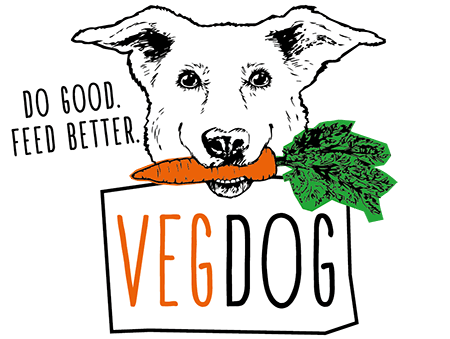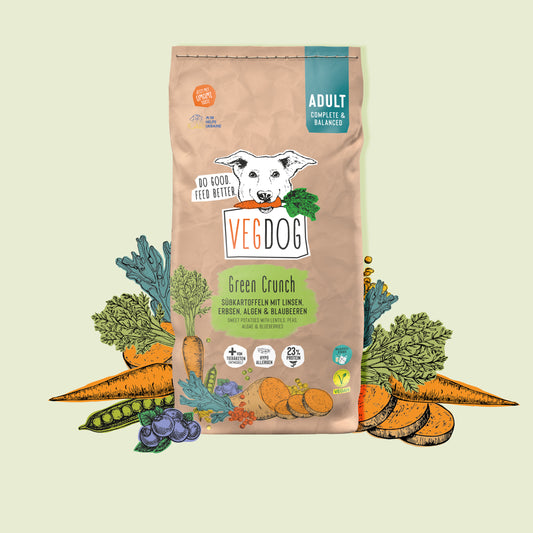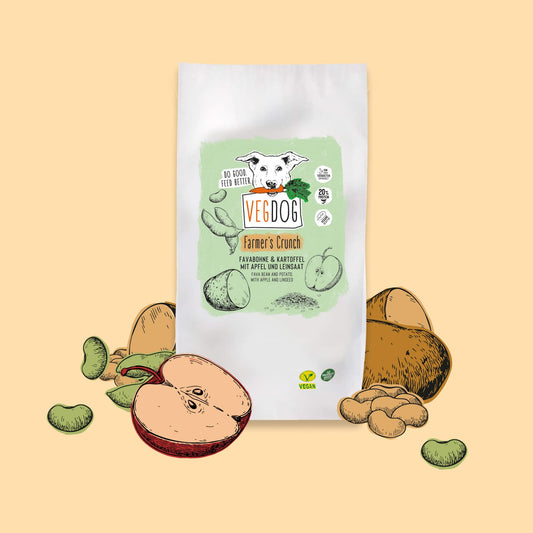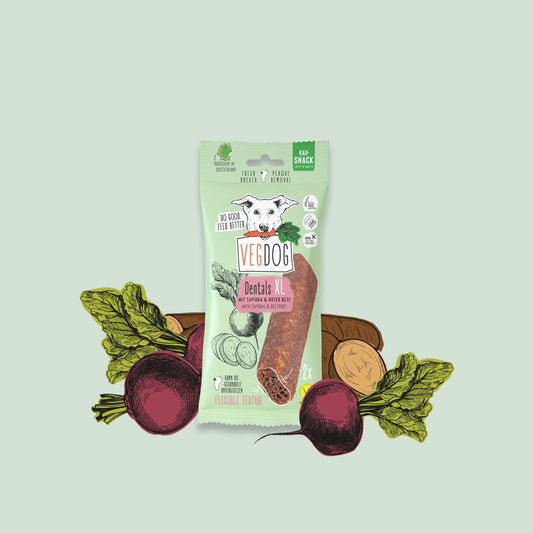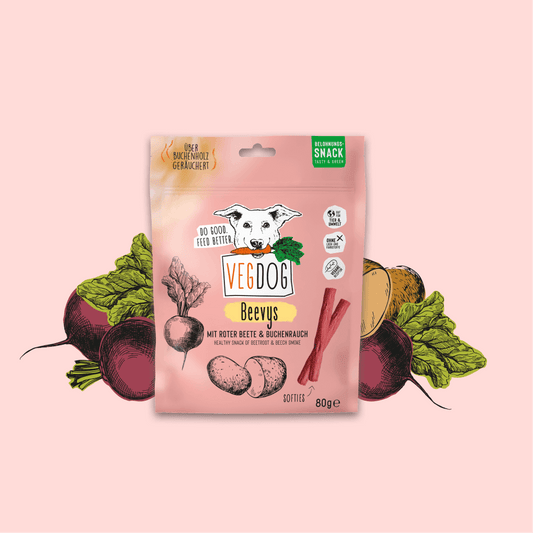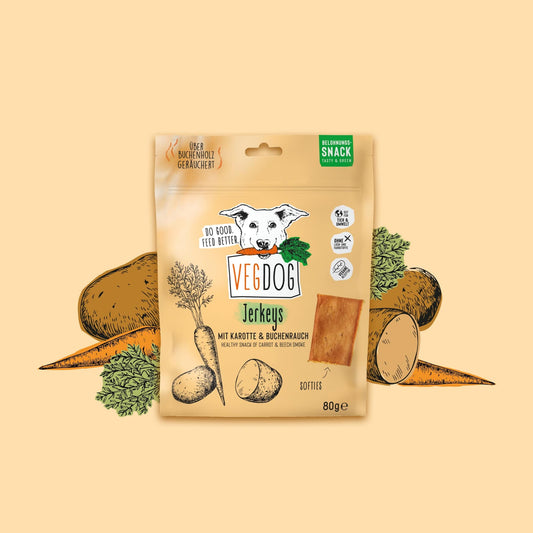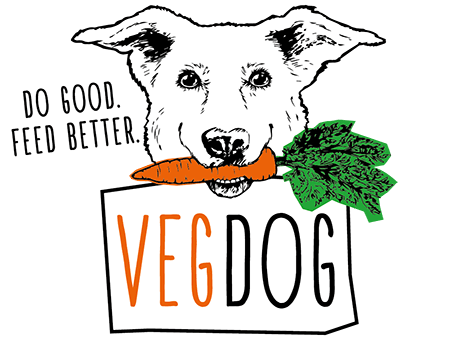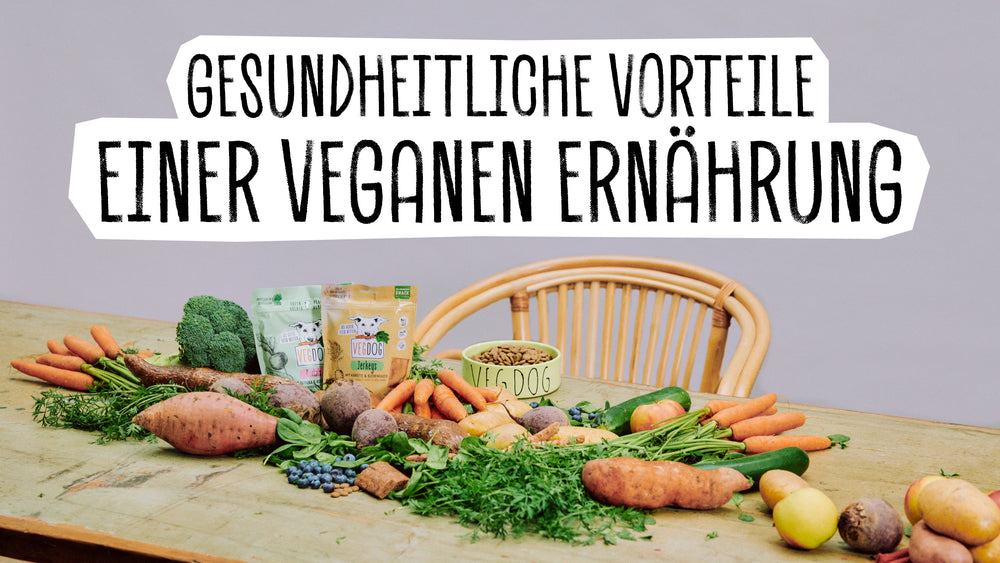
WHAT ARE THE HEALTH BENEFITS OF A VEGAN DIET?
Is vegan really better? This is a question that many dog owners who feed their dogs a partially vegan or completely vegan diet or who are thinking about changing their food to a vegan diet are sure to ask themselves. We present the health benefits!
 Author: Emmy-Lou Lynch
Author: Emmy-Lou Lynch
 Proofreader: Carla Steffen
Proofreader: Carla Steffen
3 Benefits of Vegan Dog Food
The most important things at a glance:
- Vegan nutrition for dogs not only reduces animal suffering, but is also environmentally friendly
- Dogs are not pure carnivores and can now also digest starch and carbohydrates well
- Vegan dog food is healthy and is also an alternative for food allergies
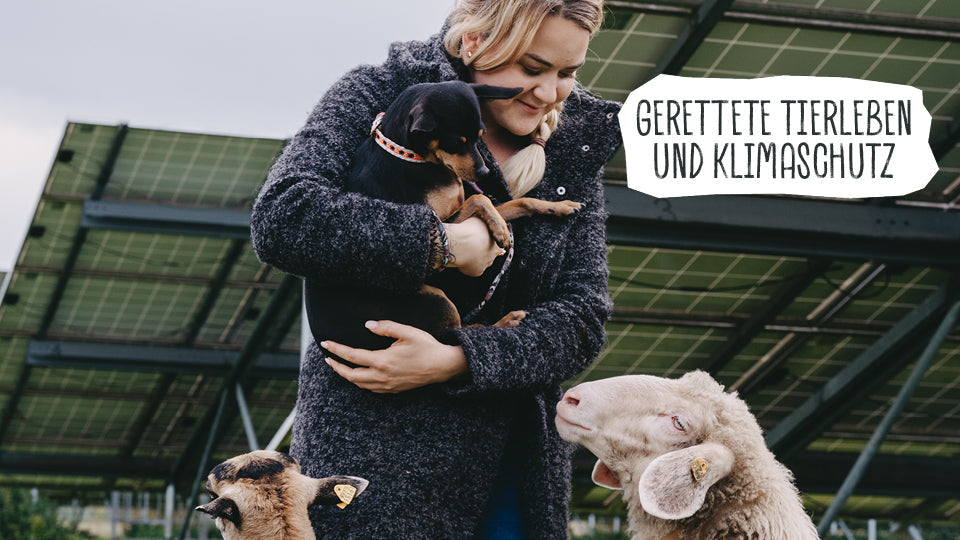
1.Reduction of animal suffering
There are many reasons why switching to a vegan diet is good and important. When it comes to the environment and ethics, one thing is clear: yes, vegan is better! There is less animal suffering , because a vegan dog (15 kg) saves the lives of an average of 100 chickens per year. Many manufacturers advertise that they use "pure muscle meat" in their food, and the proportion of meat in most types of food is significantly higher than is actually necessary. For these enormous quantities of high-quality meat that does not end up in the food chain, so-called "farm animals" inevitably have to be slaughtered just for the animal feed industry.
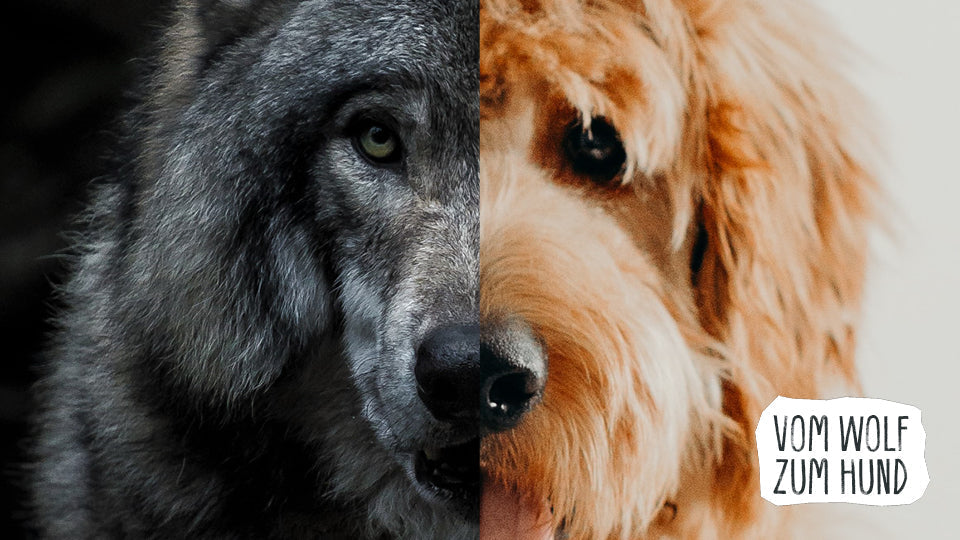
2. Environmental friendliness
Less CO2 is also emitted than when keeping animals for animal feed production. For example, with one pack of our BEEVYS or JERKEYS you save 850 g of CO2 - that's the equivalent of a 5 km car journey!
On the other hand, less land is needed, as a lot of arable land is used to grow fodder plants for “livestock”. This in turn makes vegan food more resource-efficient. The list goes on. But what about health? Does a vegan diet have any advantages for dogs and if so, what are they?
Excursus: Studies on the topic of dog-friendly nutrition
Most people are initially put off by the idea of feeding a dog a vegan diet: “That can’t be healthy! Dogs are descended from wolves! Dogs need meat, they are carnivores – pure meat eaters.” But that’s not entirely true. Yes, dogs are descended from wolves, but they have long since ceased to be carnivores [1]. They are also no longer particularly similar to wolves in many ways.
The dog is a domesticated pet. People started keeping dogs around 15,000 years ago. Over this time, the anatomy and nutritional physiology have changed significantly [2]. The dog has developed from a wild predator into a cuddly, trusting omnivore.
If you take a look at the specialist literature, you will see that the dog is no longer referred to as a carnivore, but as an omnivore – that is, as an omnivore [3].
This is demonstrated, for example, by the fact that the dog's digestive tract is now able to digest starch and carbohydrates excellently.

Unsere Topseller

3. Vegan dog food is healthy!
But now the question is: Is vegan really better? Really healthier?
We are convinced that vegan dog food can do everything that meat-based dog food can do! Vegan is just as healthy and meets the needs of dogs as a meat-based diet. However, it is not possible to make a blanket statement as to whether a food is healthier or unhealthy. Any diet can be healthy as long as the composition is right and it can be ensured that the dog is provided with all the important nutrients . A good or healthy food must therefore first and foremost meet the needs, regardless of the ingredients. Meeting the needs of our complete feed is our highest priority, alongside product quality!
However, at VEGDOG we also see the ethical advantages that a vegan diet brings and therefore believe that vegan is the way to go. Every step is important: even reducing animal ingredients already makes a big difference.
Whether healthier or not, a vegan diet always brings health benefits!
Firstly, a vegan diet eliminates most of the main allergens [4] for dogs . This includes animal protein in particular. This makes vegan food an excellent alternative for people with food allergies .
On the other hand, vegan food contains significantly more secondary plant substances such as polyphenols, as these are only found in plants. They can have a positive effect on the immune system and are anti-inflammatory and antioxidant [5].
Vegetable oils, especially algae and linseed oil, are rich in omega-3 fatty acids. Even fish, which is known to be a source of omega-3 fatty acids, gets these from its food - algae. Omega-3 fatty acids also have a positive effect on the immune system , they also regulate inflammation and support cell development . Oils such as hemp or sunflower oil provide valuable omega-6 fatty acids, which support the skin barrier, for example. In addition, vegetable products usually contain higher proportions of unsaturated fatty acids, while animal fats are generally richer in saturated fatty acids.
In our product range, our oil blend “ VISH OIL ” and our snacks “ VEGGIES skincare ” provide your four-legged friend with valuable omega-3 and -6 fatty acids.
Given the climate crisis, the exorbitant share of livestock farming in global emissions and resource scarcity, alternative protein sources must gain importance.[6] We should be clear:
Healthy, vegan dogs – for the sake of the environment and the animals.
FAQ
No, there is no ban on vegan dog food in Germany. However, according to the law, your furry friend must receive all the nutrients it needs. At VEGDOG, we develop our dog food together with veterinarians so that we can offer high-quality food like GREEN CRUNCH .
It is always best to seek veterinary advice, especially if you are preparing the vegan food yourself. This way, you can ensure a balanced diet.
Basically, there are many different vegan recipes that you can prepare for your furry friend at home. It is very important that these recipes have been mathematically checked. We have put together a protein-rich vegan recipe for you here .
SOURCES:
1. & 2. Driscoll, CA, Macdonald, DW Top dogs: wolf domestication and wealth. J Biol 9, 10 (2010). https://doi.org/10.1186/jbiol226
3. NRC: National Research Council. 2006. Nutrient Requirements of Dogs and Cats. Washington, D.C
4. Mueller, RS, Olivry, T. & Prélaud, P. Critically appraised topic on adverse food reactions of companion animals (2): common food allergen sources in dogs and cats. BMC Vet Res 12, 9 (2016).
5. Sgorlon S, Stefanon B, Sandri M, Colitti M. Nutrigenomic activity of plant derived compounds in health and disease: Results of a dietary intervention study in dogs. Res Vet Sci. 2016 Dec;109:142-148. doi: 10.1016/j.rvsc.2016.10.005. Epub 2016 Oct 13. PMID: 27892863. And Tanprasertsuk J, Tate DE, Shmalberg J. Roles of plant-based ingredients and phytonutrients in canine nutrition and health. J Anim Physiol Anim Nutr (Berl). 2022 May;106(3):586-613. doi: 10.1111/jpn.13626. Epub 2021 Sep 8. PMID: 34495560; PMCID: PMC9291198.
6. Thavamani, A., Sferra, TJ & Sankararaman, S. Meet the Meat Alternatives: The Value of Alternative Protein Sources. Curr Nutr Rep 9, 346–355 (2020).
